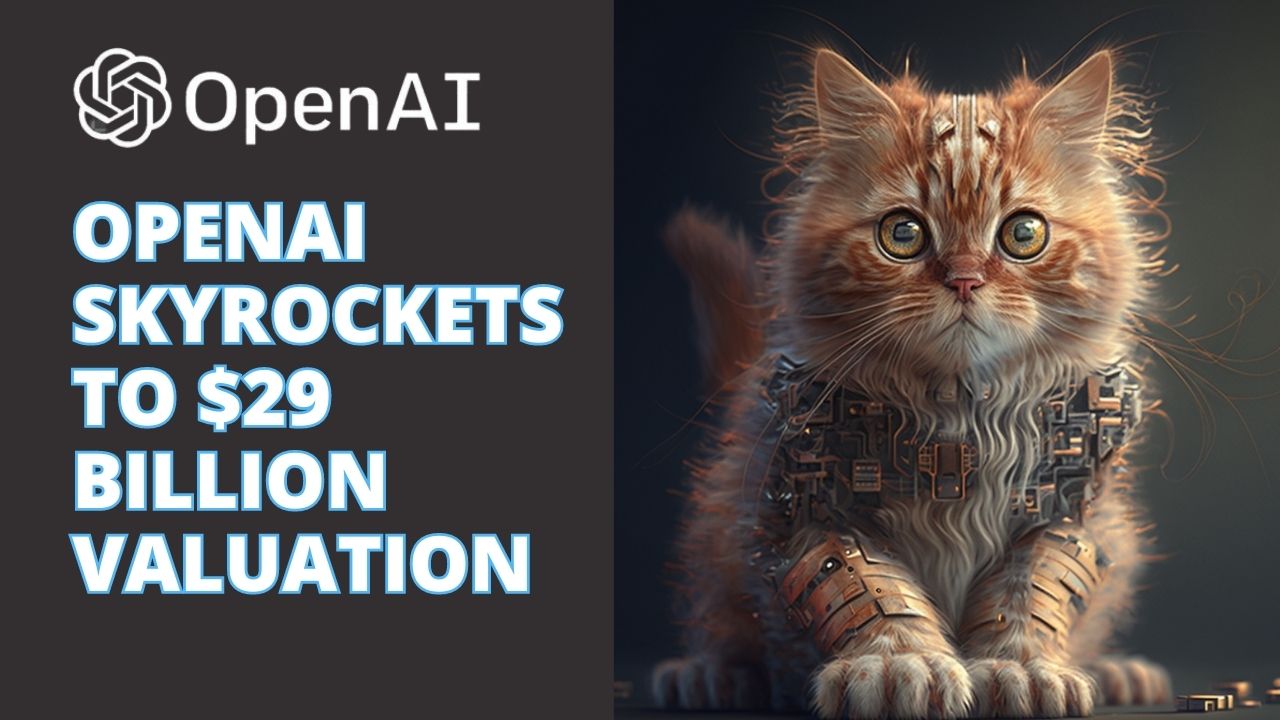Trailblazing AI company OpenAI, the creator of the renowned ChatGPT, has successfully secured over $300 million in funding, raising its valuation to an impressive $27-29 billion. TechCrunch reports that this remarkable achievement is attributable to new investors such as Tiger Global, Sequoia Capital, Andreessen Horowitz, Thrive, K2 Global, and Founders Fund, all of whom have purchased new shares in the organization.
It is important to note that this financial milestone is distinct from the substantial investment by Microsoft in OpenAI earlier this year, which is estimated at $10 billion. With these recent investments, external investors now possess over 30% of OpenAI’s ownership.
Founded in 2015, OpenAI has gained significant recognition for its AI technology, particularly ChatGPT – a generative AI service offering users comprehensive, coherent responses to their questions. SimilarWeb reveals that ChatGPT attracted a remarkable one billion visitors to its website in February alone.
Despite its accomplishments, ChatGPT has faced challenges regarding its dependability, privacy, vulnerability to manipulation, and the long-term consequences of OpenAI’s GPT branding. OpenAI recognizes the need for ongoing enhancements and is actively developing solutions and products to address these issues.
As OpenAI progresses in its technology, it also seeks to tackle concerns related to its ChatGPT platform. Even with existing controversies, the company’s achievements stand out in the AI industry. OpenAI’s dedication to refining its product offerings has cultivated a thriving ecosystem centered around its AI technology.
Numerous enterprises, ranging from startups to large corporations, have begun incorporating GPT and ChatGPT into their products and services. This has spurred other technology behemoths like Google and Meta to hasten their efforts in generative AI. Google launched Bard, while Meta introduced LLaMA as a proprietary Language Model to compete with GPT.
Despite increased competition, OpenAI’s unwavering commitment to AI innovation has solidified its role as a powerful market player. The company’s seven-year dedication to AI advancement, coupled with meticulous attention to detail from its management, distinguishes OpenAI from its competitors.
During a recent AI conference, co-founder and CEO Sam Altman expressed his optimism, stating, “We’ve been working on it for so long, but it’s with gradually increasing confidence that it’s really going to work. We’ve been [building] the company for seven years. These things take a long, long time. I would say, by and large, in terms of why it worked when others haven’t: it’s just because we’ve been on the grind, sweating every detail for a long time. And most people aren’t willing to do that.”
Beyond ChatGPT, OpenAI’s product lineup features groundbreaking offerings such as Dall-E, an AI-driven image-generation tool, and Whisper AI, a speech recognition model. In partnership with Microsoft, OpenAI has incorporated its APIs into the Azure infrastructure to accommodate the computational demands of these models. Furthermore, in an effort to challenge Google’s search services, Microsoft recently unveiled GPT-4 integration with Bing.
